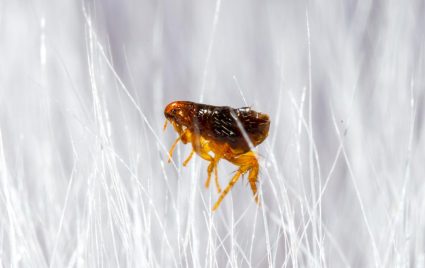
Bed bugs are a common household pest that can cause a variety of health issues, including skin rashes, psychological effects, and allergic symptoms. They are notoriously hard to get rid of and can spread rapidly once they have infested a home. One common method of controlling bed bugs is using pesticides. But does pesticide really kill bed bugs? And if so, how effective is it? Let’s delve into this topic in detail.
Yes, pesticides can kill bed bugs. The U.S. Environmental Protection Agency (EPA) has registered over 300 products for use against bed bugs. However, the effectiveness of pesticides can vary depending on various factors such as the extent of the infestation, the quality of the pesticide application, and the resistance of the bed bug population to specific pesticides. It is often necessary to use a combination of methods, including both chemical and non-chemical approaches, to effectively control bed bugs.
Pesticides and Bed Bugs: A General Overview
Yes, pesticides can kill bed bugs. The U.S. Environmental Protection Agency (EPA) has registered over 300 products for use against bed bugs, which fall into seven chemical classes: pyrethrins, pyrethroids, desiccants, biochemicals, pyrroles, neonicotinoids, and insect growth regulators. These pesticides work in different ways to kill bed bugs, reducing the likelihood of the bugs developing resistance to them.
However, the effectiveness of a pesticide depends on various factors, such as the extent of the infestation, the quality and coverage of the pesticide application, and whether the bed bug population has developed resistance to the specific pesticide or class of pesticides. It is essential to note that not all treatments work in all situations, and eliminating bed bugs may require patience and diligence, especially if you are doing it yourself without professional help.
Understanding Bed Bugs and Their Resistance
Bed bugs have developed resistance to certain pesticides. They have shown resistance to various classes of insecticides, including organochlorines (OCs), organophosphates (OPs), carbamates, pyrethrins, and pyrethroids. For example, bed bugs became resistant to DDT, leading to the use of pyrethroid pesticides like deltamethrin and lambda-cyhalothrin. However, some bed bugs that were resistant to DDT also showed cross-resistance to pyrethroids. Recent studies have found that many bed bug populations are still resistant to DDT and pyrethroids.
The Effectiveness of Pesticides
Pesticides can be highly effective against bed bugs if used correctly. It usually takes anywhere from 2-4 treatment sessions over a period of 3-6 weeks to completely eliminate bed bugs, depending on the level of infestation and the size of the house. The actual time it takes to kill bed bugs will depend on the type of spray you’re using and the active ingredients in that spray. Contact sprays kill bed bugs in just seconds, while residual sprays work more slowly but last a long time.
It’s also crucial to remember that bed bug infestations are rarely eliminated in a single visit, and pest management professionals typically schedule follow-up inspections within two to three weeks of the final treatment to ensure the bed bug problem has been resolved.
Preparing Your Room for Pesticide Treatment
Before applying pesticide, it’s essential to prepare your room properly. This includes removing clutter, cleaning and inspecting items, making your bed an island, laundering clothing and bedding, vacuuming and steam cleaning, sealing cracks and crevices, and preparing for treatment.
Alternative Methods to Pesticides
While pesticides can be effective, they are not the only method for controlling bed bugs. Alternative methods include heat treatment, diatomaceous earth, talcum powder, baking soda, essential oils, vacuuming, washing and drying, and encasing mattresses and box springs.
In conclusion, while pesticides can kill bed bugs, they are not always the most effective method, especially if the infestation is large or the bugs have developed resistance. It’s often necessary to use a combination of methods, including both chemical and non-chemical approaches, to effectively control bed bugs.
Frequently Asked Questions
What are the health issues caused by bed bugs?
Bed bugs can cause a variety of health issues, including skin rashes, psychological effects, and allergic symptoms. Some people may also experience insomnia or anxiety due to a bed bug infestation.
How do pesticides kill bed bugs?
Pesticides kill bed bugs by interfering with their nervous system or dehydrating them. For instance, pyrethrins and pyrethroids work by disrupting the bed bugs’ nervous system, while desiccants work by dehydrating the bugs.
Can bed bugs become resistant to all types of pesticides?
While bed bugs can develop resistance to certain types of pesticides, they cannot become completely immune to all pesticides. The U.S. Environmental Protection Agency has registered over 300 products for use against bed bugs in seven different chemical classes, reducing the likelihood of the bugs developing resistance to all of them.
How long does it take for a pesticide to kill bed bugs?
The time it takes for a pesticide to kill bed bugs can vary greatly, depending on the type of pesticide and how it’s applied. Contact sprays can kill bed bugs in just seconds, while residual sprays work more slowly but last a long time.
Are there non-chemical methods for controlling bed bugs?
Yes, there are several non-chemical methods for controlling bed bugs. These include heat treatment, using diatomaceous earth or talcum powder, vacuuming, washing and drying infested items, and encasing mattresses and box springs.










